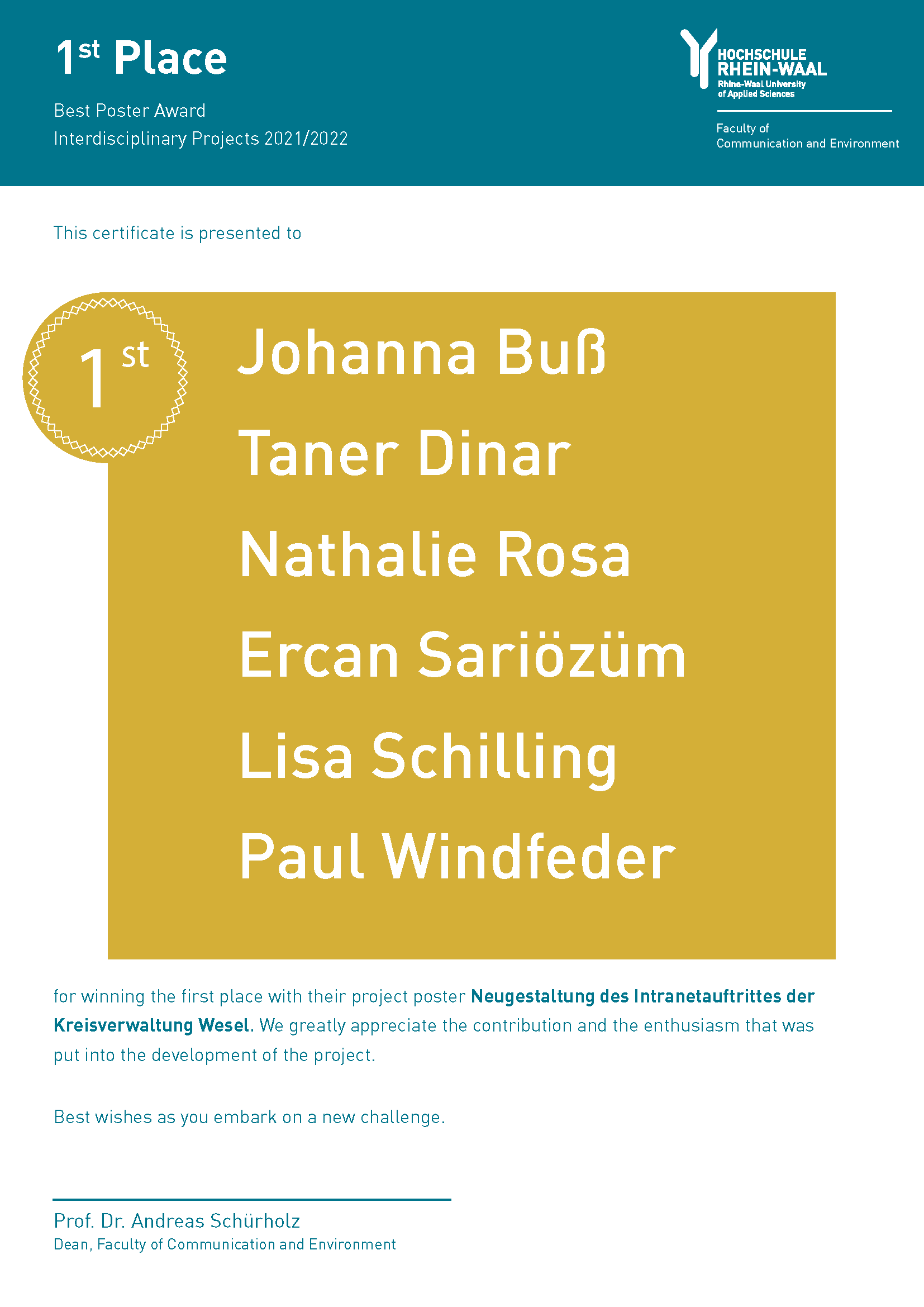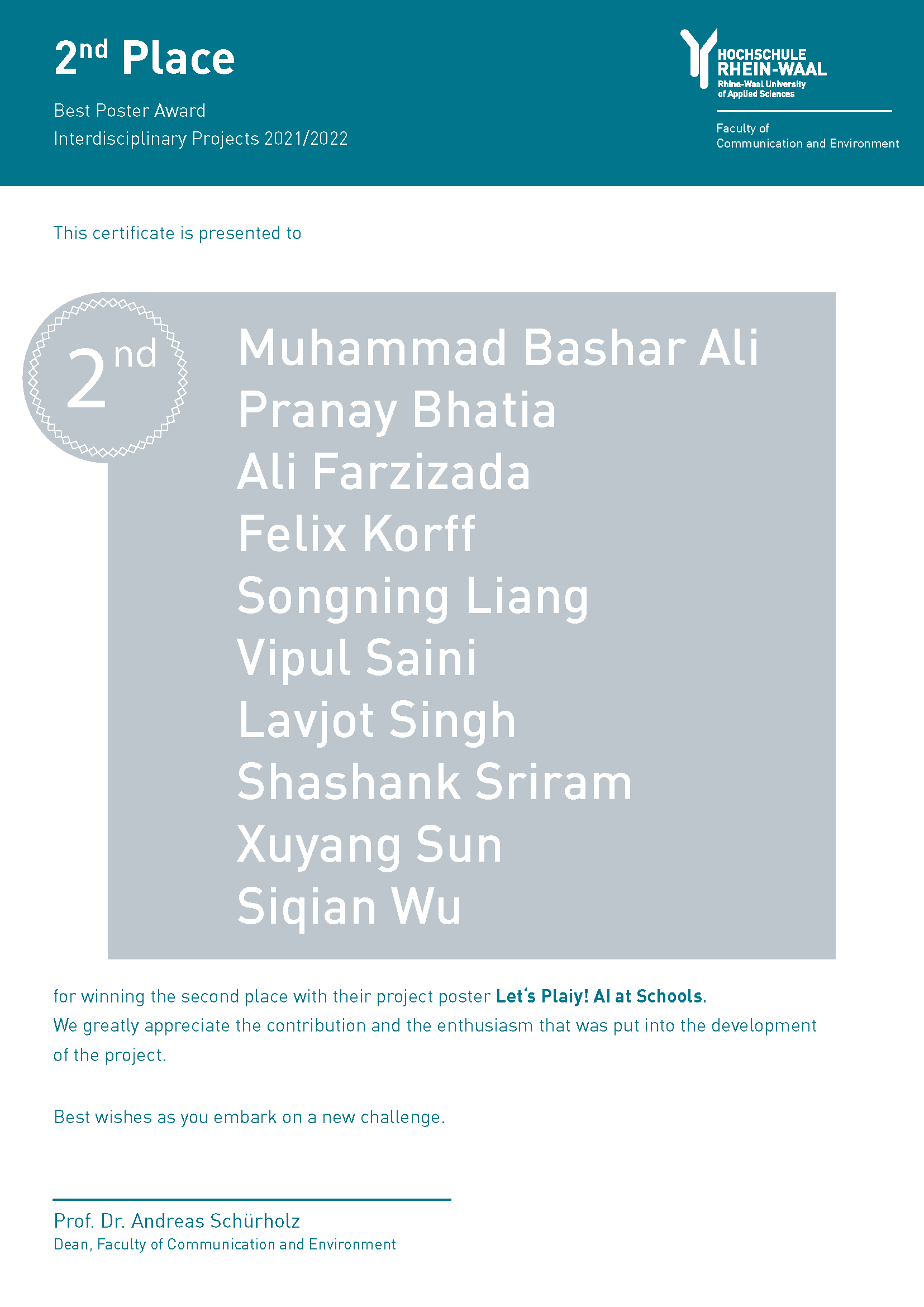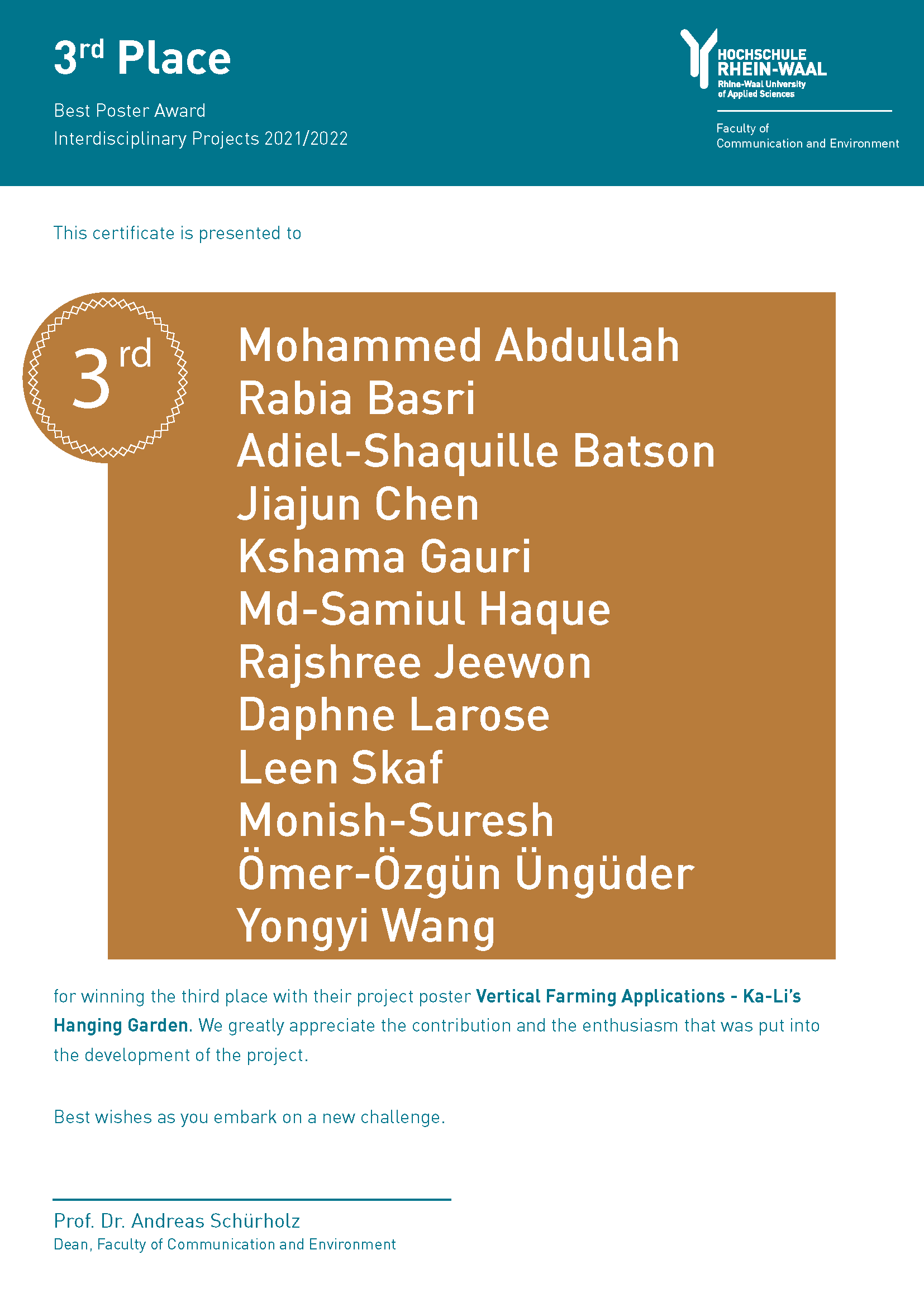First place
was won by Taner Dinar, Ercan Sariözüm, Paul Windfeder, Lisa Schilling, Nathalie Rosa and Johanna Buß with their project poster on the topic of "Redesigning the intranet site of the district administration Wesel". Supervised by Prof Dr Timo Kahl, Marwin Wiegard and in cooperation with project partners Andreas Ochs and Michaela Schmidke (District administration Wesel, Department 15 - Competence Development, Digitisation and Change Management), the student team developed a draft concept for an improved intranet site. Expert interviews as well as an online survey supported the team of E-Government, Media Communication and Computer Science as well as Psychology students to determine future requirements for the internal information and work platform and to develop a preliminary design. For a final evaluation administrative experts were given the chance to test a click prototype.
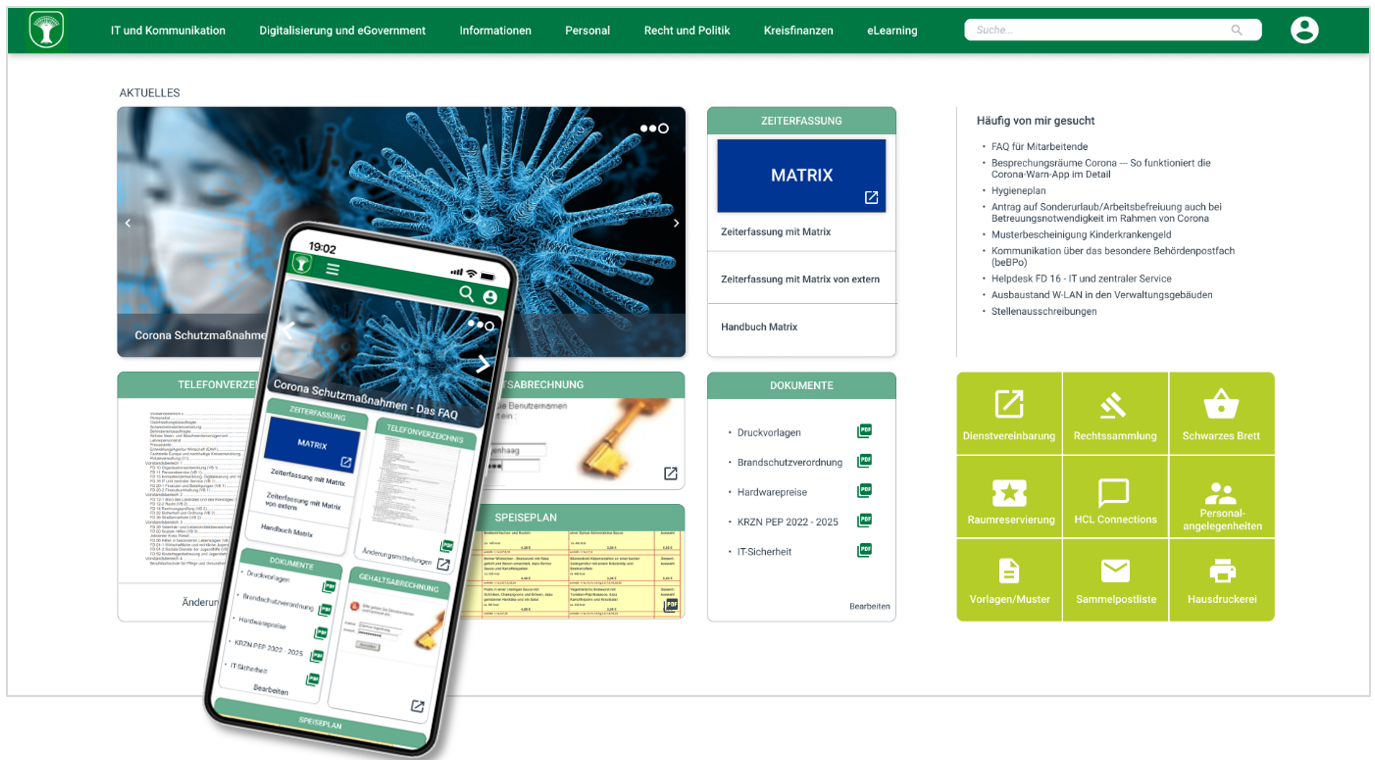
Second place
The second place
was won by Muhammad Bashar Ali, Pranay Bhatia, Ali Farzizada, Felix Korff, Songning Liang, Vipul Saini, Lavjot Singh, Shashank Sriram, Xuyang Sun and Siqian Wu with their „Let's plaiy!“ project. They aimed at teaching school children aged around 12 the basics of "artificial intelligence" (AI) in a playful and explorative way. The children used small computers and webcams to explore the limits and possibilities of object recognition with AI in live videos, and the Let's Plaiy! developers designed exciting course materials and games that appealed to the children's spirit of research. They also developed the necessary software to couple object recognition on the NVIDIA Jetson Nano computers with the browser's graphical programming language SNAP!
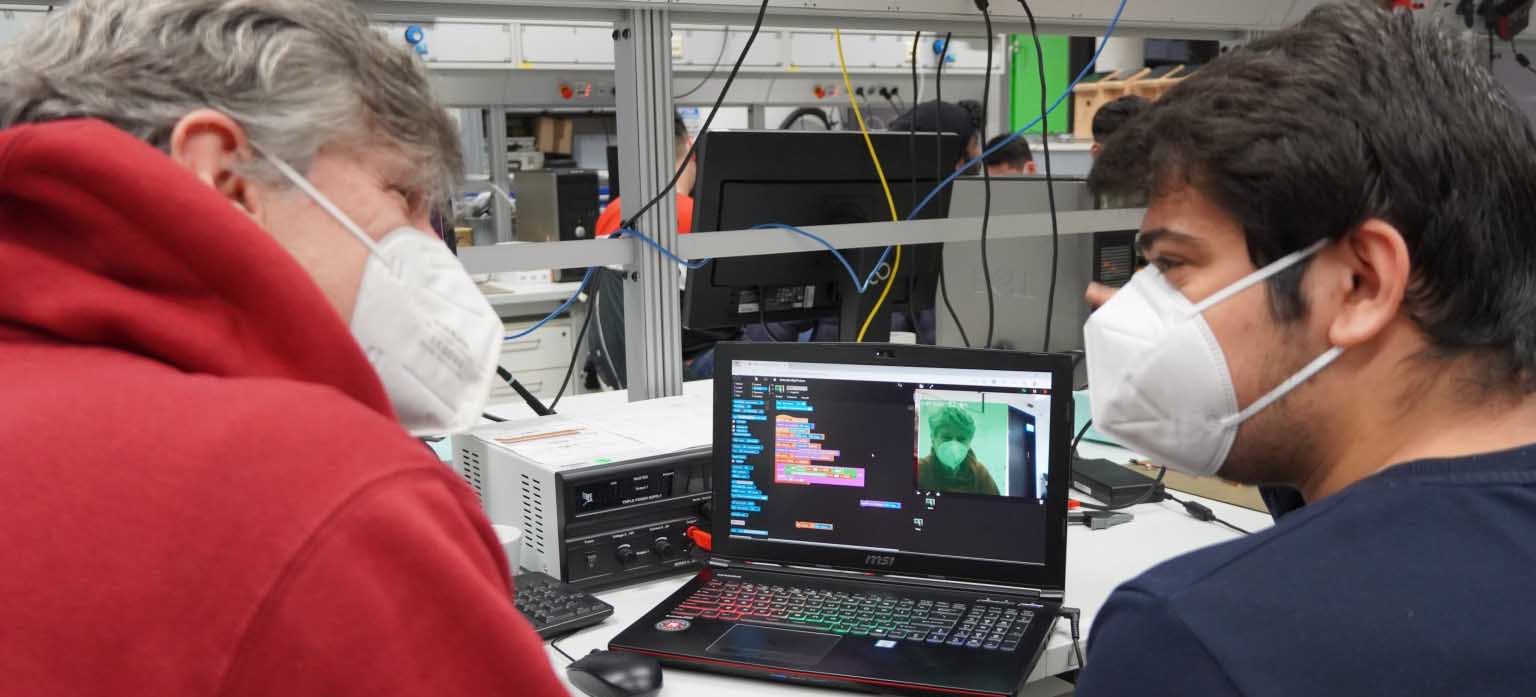
Third place
The third place
went to Mohammed Abdullah, Rabia Basri, Adiel-Shaquille Batson, Jiajun Chen, Kshama Gauri, Md-Samiul Haque, Rajshree Jeewon, Daphne Larose, Leen Skaf, Monish-Suresh, Ömer-Özgün Üngüder and Yongyi Wang with their project "Vertical Farming" or the efficient use of land in horticulture. Due to increasing urbanisation and rising land prices, and a higher demand for organic raw materials at the same time, new efficient solutions for the production of food need to be found. Supervised by Ahmed Abdellatif (research assistant in the XI Lab Niederrhein project), the project team of Communication and Information Engineering as well as Environment & Energy students investigated various possibilities of a more productive land use by vertical cultivation, supported by IoT-based sensor/actuator systems.
The students developed a construction that maximises the absorption of sunlight and at the same time offers the option of using e.g. LED growth lamps if required. By means of a micro-controller, different growth parameters are observed in order to optimally adapt e.g. nutrients, the pH value and the light requirement to the plants. In the course of the project, the students learned about various digital manufacturing techniques such as CAD, laser cutting and 3D printing, and produced a functioning prototype in the university's FabLab. In the next step, the prototype will be tested on a planting and the project data will be published open-source.

All project posters will be exhibited on Campus in the upcoming summer semester.

